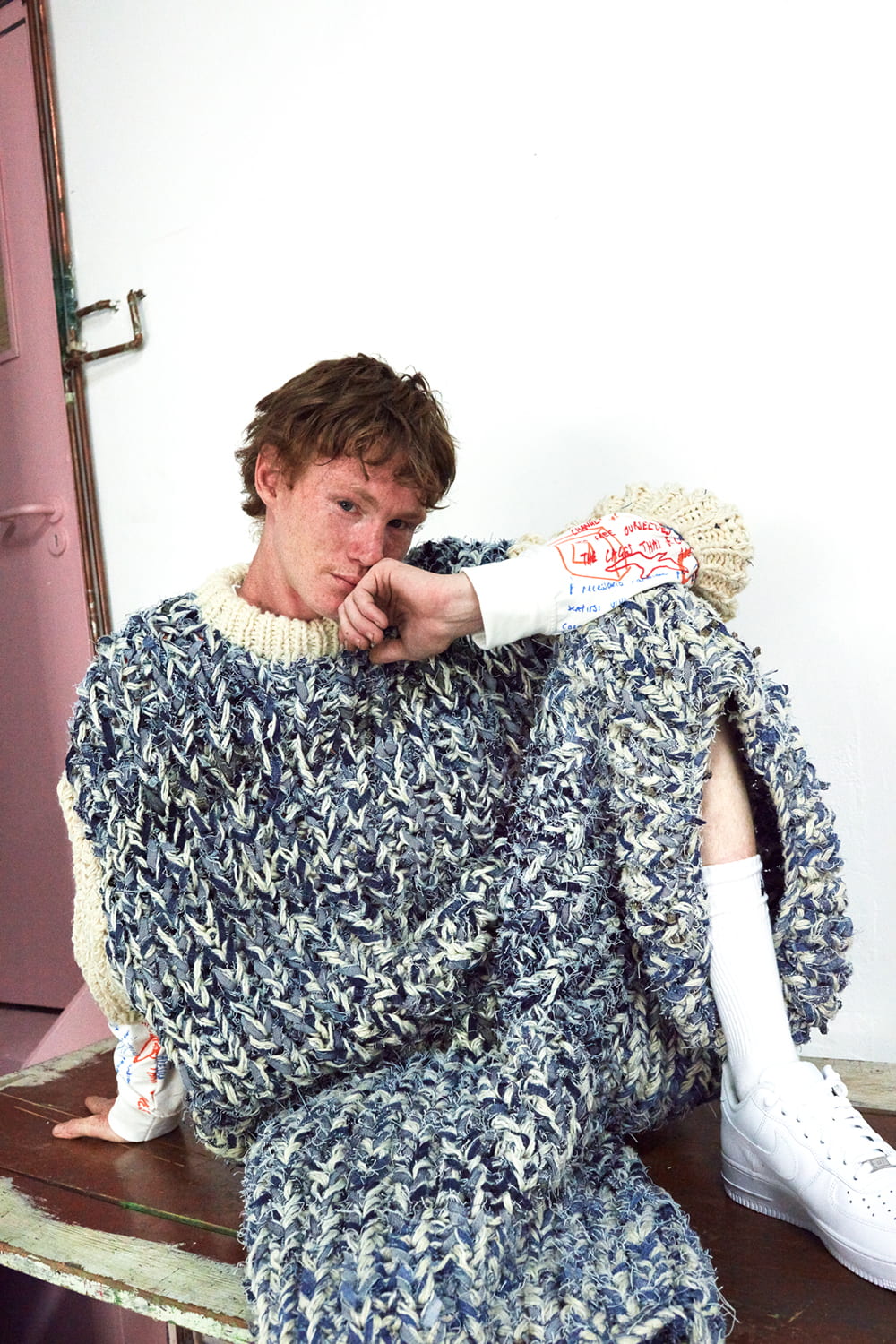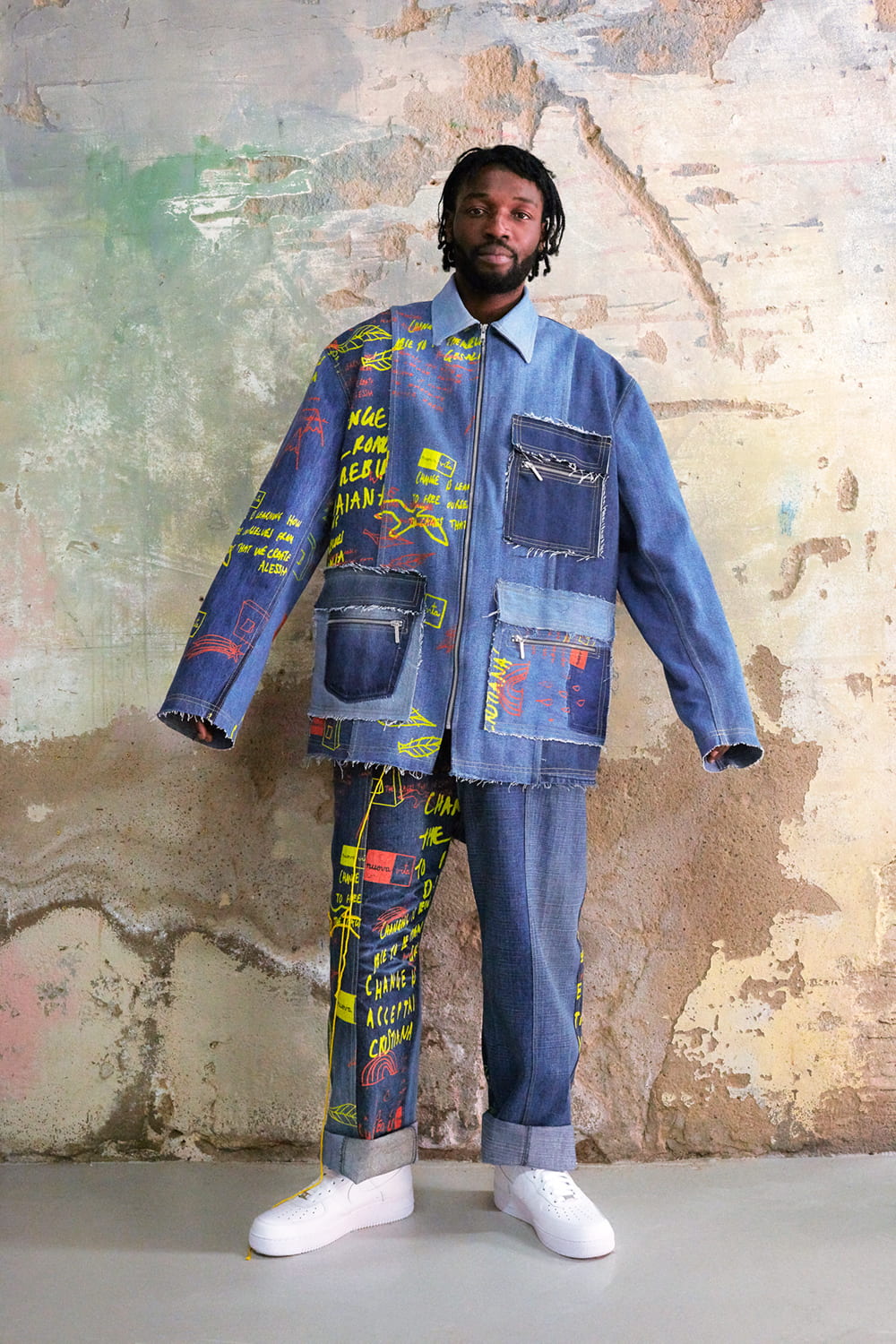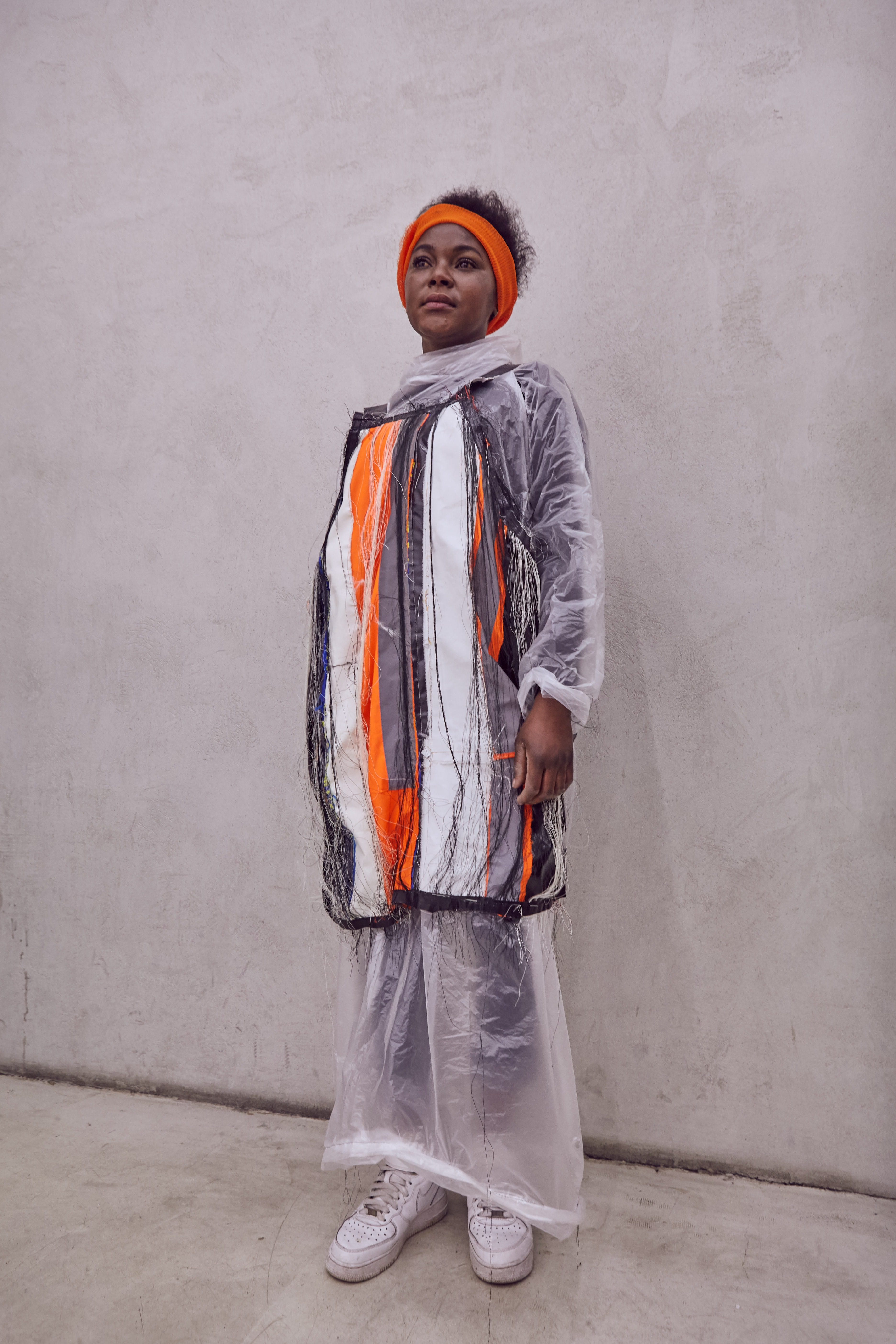Last year at Business of Fashion VOICES I witnessed an incredibly moving talk by James Scully on the culture of bullying within modelling. Since then, further exposures (also by Scully) have revealed the concerning scale of model mistreatment. Combine this with the ethical issues of diversity and lack of representation, and you realise that the whole culture around modelling needs radical reform.
Whilst there has been some positive steps taken by major fashion houses – Balenciaga have made wholesale changes to their casting process post-Scully for example – I think real change will only arise with the next generation of designers.
Nowhere is this more evident, than with one of the stand out designers of London Fashion Week Men’s, Bethany Williams – a designer who explores fashion’s potential to initiate social and environmental change.
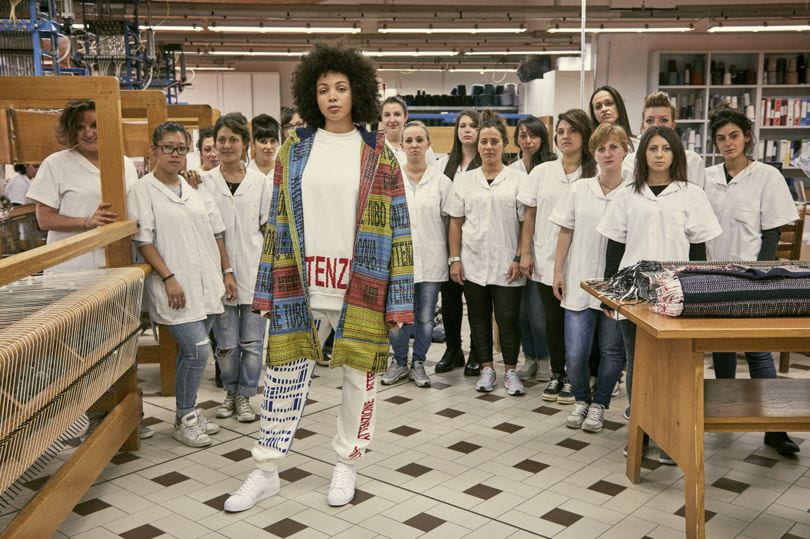
Bethany Williams ‘Women for Change’. Photography Amber Grace Dixon
For her latest collection ‘Women for Change’, Bethany worked with female prisoners at LCF’s Making for Change unit, and the San Patrignano drug and alcohol dependency program, providing skill and meaningful employment for serving and recently released women to help reintegrate them into society.
And whilst Bethany is not the only designer putting considerable thought into the social impact of their collections, for me what stood out about her work was that this thought didn’t begin and end with the clothes; unlike many designers she went a step further and made sure the way the clothes were presented echoed the values implicit in the clothes.
For the lookbook and campaign shoot Bethany collaborated with TIH Models, casting Kris McAllister and Mustapha. On viewing the collection, you wouldn’t notice anything exceptional about this, but on reading further you discover both are homeless and unemployed in London.
Kris and Mustapha belong to TIH Models. Founded by Tatjana Irina a German (now London-based) photographer, the agency exclusively features individuals currently or transitioning out of sleeping rough on the streets of London.
Bethany Williams SS18. Photography Amber Grace Dixon. TIH Models Kris and Mustapha
There are around 8,000 people sleeping rough on the streets of London every year. Most people don’t choose to be homeless – they are there because of unfortunate circumstances and want to work. But many employers don’t look upon homeless people in a favourable light, and with many lacking qualifications and struggling with addiction, the cycle of homelessness can be hard to break.
By providing homeless people with paid work, TIH aims to challenge not only the financial issues behind homelessness, but also the more subtle, but no less significant psychological issues. Working as a model with TIH can help boost self-esteem, give individuals a greater sense of independence and build community.
It’s an ingenious idea. At London College of Fashion we believe in using fashion to transform lives, and to see this in action in hugely inspiring.
As a photographer, Tatjana had worked on issues of social injustice before. When she came to London and discovered the scale of homelessness here, she wanted to raise awareness of the issue through her photography.
Inspired by Joshua Coombes work to ‘do something for nothing’ where he offers free haircuts for the homeless, Tatjana started to wonder how she could also use her skills to improve people’s self-esteem.
However, she often found people shy and uncomfortable being photographed, and wondered how she could improve this. “I thought perhaps something like a ‘make-over’ would work” she explains.
It was through The Prince’s Trust enterprise programme, which gave Tatjana mentoring and business advice, that the idea for a model agency evolved.
“The models were sceptical at the beginning. Their life can be all over the place, so it takes a lot of trust on their part. But whenever I saw people on the street, I spoke to them about the project and gradually I persuaded people.”
But, as Tatjana explains, even once she had earned the trust of her models, it can be very difficult to build a network.
“I invite everybody, but only a handful will get back to me. If they don’t have a phone or they lose it, it can be really difficult to get in touch with them again. Sometimes they may have a phone when you meet them, but if they get into difficult circumstances, they may have to sell it.”
However, Tatjana’s determination has seen the agency grow to around 20 models. Not all will be ready and available to contact when a booking comes in, but she has 6-7 that are available on a consistent basis.
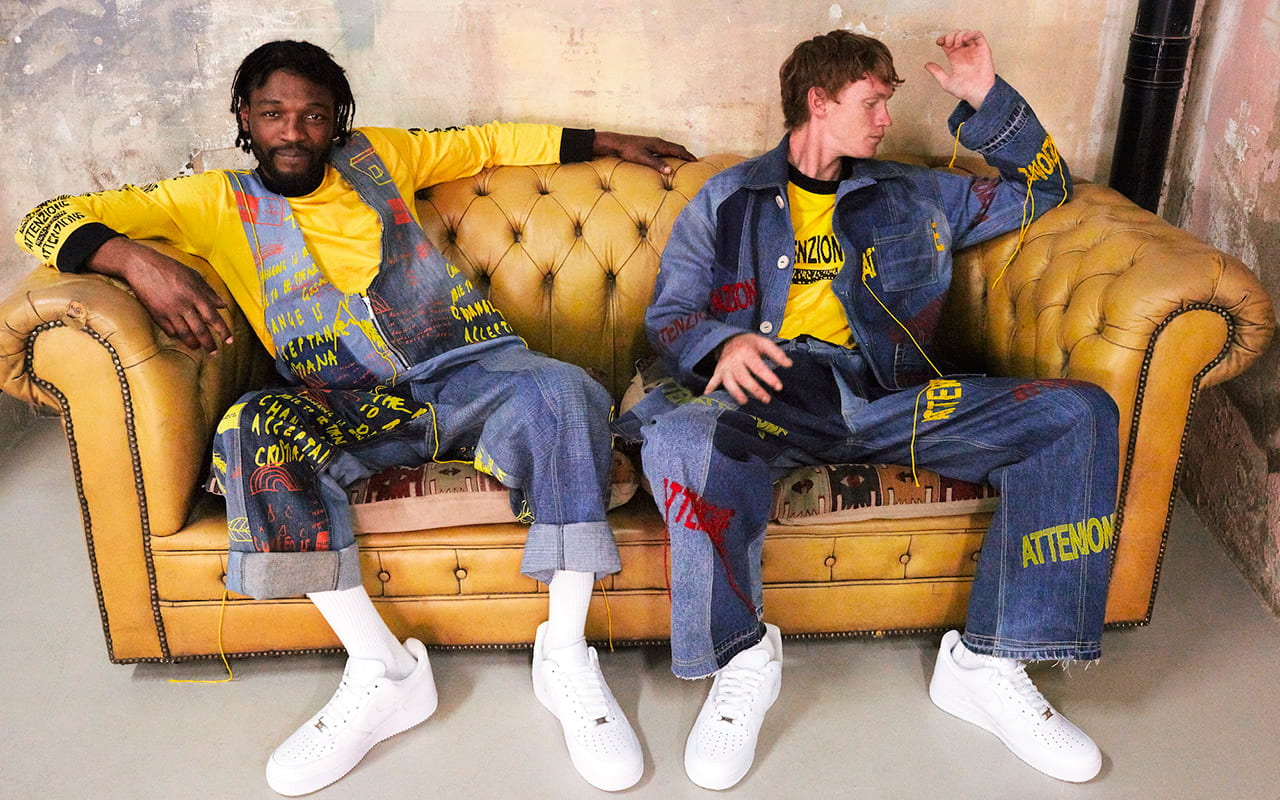
Bethany Williams SS18. Photography Amber Grace Dixon. TIH Models Kris and Mustafa
The agency was only formed just over a year ago, but is gradually making groundwaves in the industry. Their biggest feature to date was in providing the models for Bethany’s London Fashion Week Men’s show and campaign.
“It’s just a really good fit. I wouldn’t want to turn any brand down, but it is great when the brand’s values fit so well with our own. Bethany doesn’t invest in the models for nothing, she really wants to see change in the industry, both environmentally and socially. It’s such a good message. Through association with her, people realise that’s we’re about more than just model jobs.”
Tatjana hopes to build on the success of London Fashion Week Men’s and is already looking at expanding what the agency can offer.
She began renting a small studio space in October, which is open not only for the model shoots and advertising commissions, but can also be rented by members of the public, with the money going towards supporting the homeless.
The ultimate goal for Tatjana is for the modelling to be the main source of income for the models, but as bookings can be irregular, at the moment the modelling works more as “a confidence boost” for them.
However, Tatjana is keen to stress that regardless of the size of the job, the models are always paid. TIH have a minimum charge, which can prevent them from working with smaller brands, but is important in ensuring the models are paid fairly for their work.
Operating a minimum charge can be difficult in an industry where many models offer their services for free. Some of the larger model agencies regularly send round a list of new faces, who they make available to book for free in order to build up their portfolio.
“Because modelling is like a freelance industry, you can make your own price and there are no pay regulations – that’s why it’s so easy to exploit. The market is a bit ruined by so many people being prepared to work for free. This gives people the feeling that they have to be really good to charge a high price – and eventually this eats away at your self-esteem. I would like to see a minimum wage brought in,” Tatjana explains.
Alicia Wanyana. TIH Model. Photography Sofia Farnesi
Despite the challenges involved in creating and maintaining a model agency for the homeless, Tatjana comes across as someone deceptively determined. She is quiet and calm, but you can tell from the way she speaks about the project there is a real intensity and drive to make the project succeed.
There are lots of us who would like to do something beneficial in the world, but very few of us actually act upon those desires.
“For me, love means action. I grew up around a lot of sacrificial people, who had strong beliefs and sacrificed aspects of their life for those beliefs. Through this I saw change could happen.
“I don’t think I would have created TIH if I hadn’t seen other people doing similar projects. I saw Joshua Coombes project and I realised change is possible. You can’t do things by yourself, if Bethany wasn’t there, I wouldn’t be where I am now. It’s a network of people pushing in the right direction and we’re supporting each other. Then when other people see this project, they think what can I do?
Tatjana believes that through collaboration with other industry professionals they can influence change in society.
As awareness of the issues within the modelling industry continues to grow, more young brands will be turning to socially aware agencies like TIH to provide an alternative to the exploitative model; to use fashion as a force for good and to show that ‘There Is Hope’.

